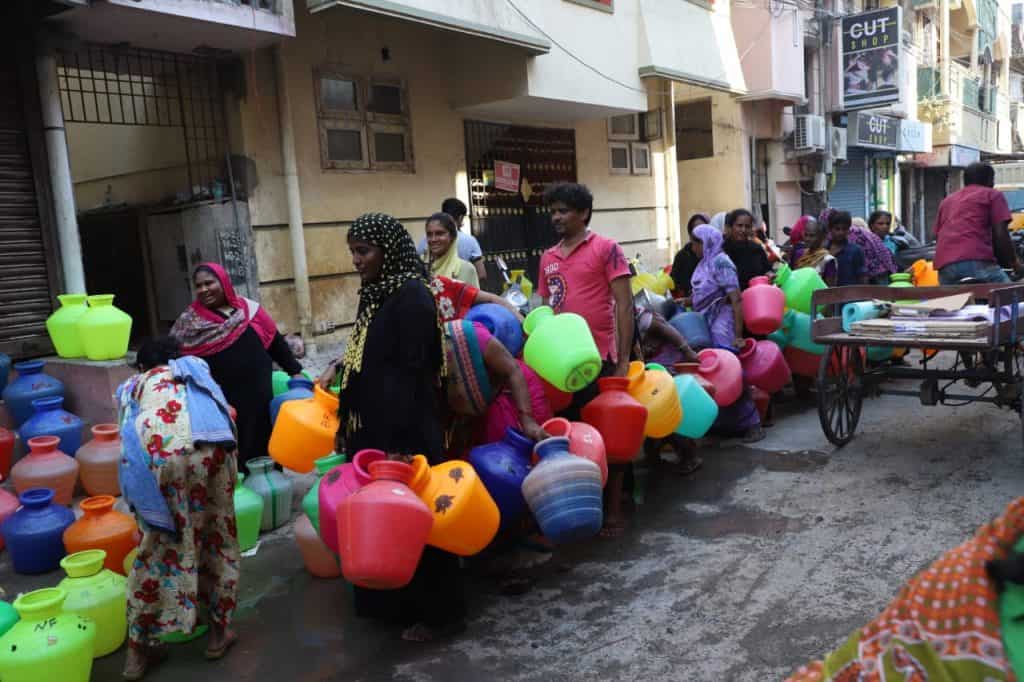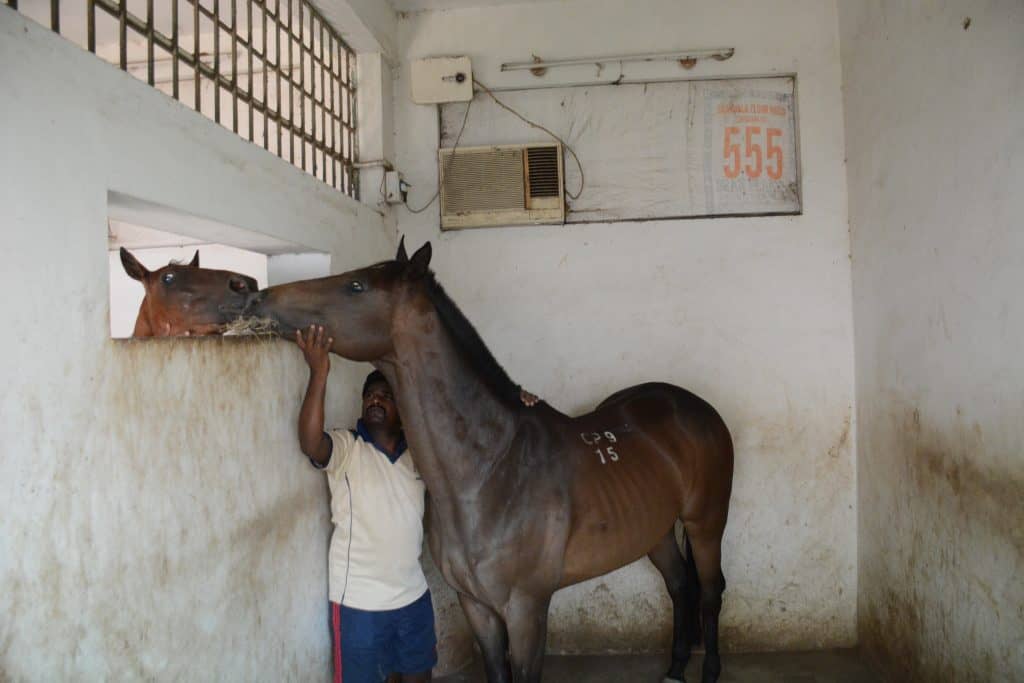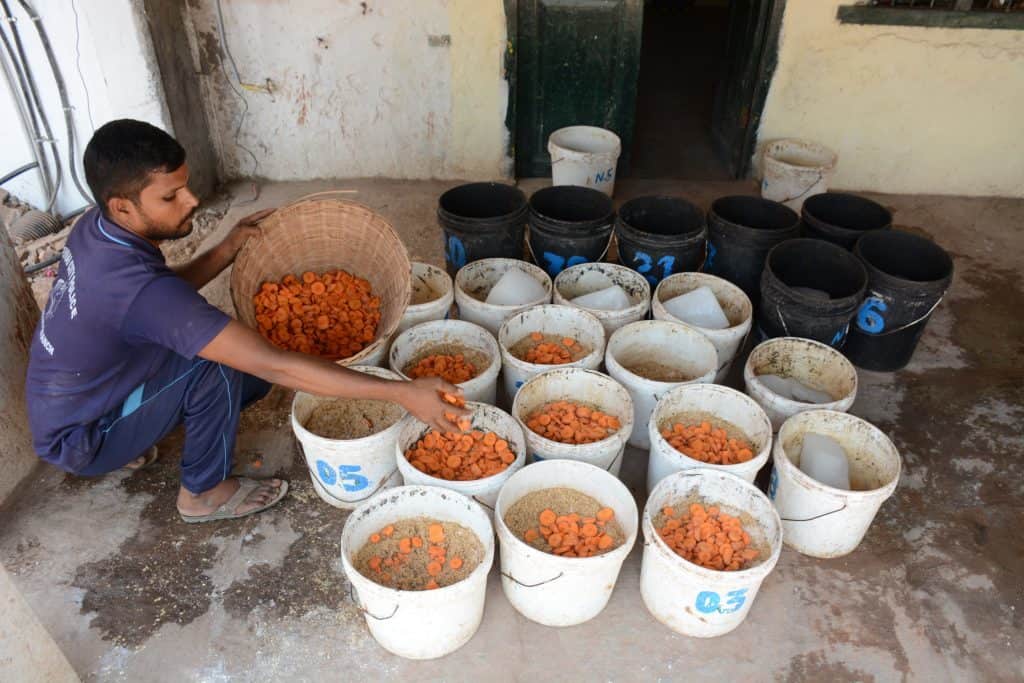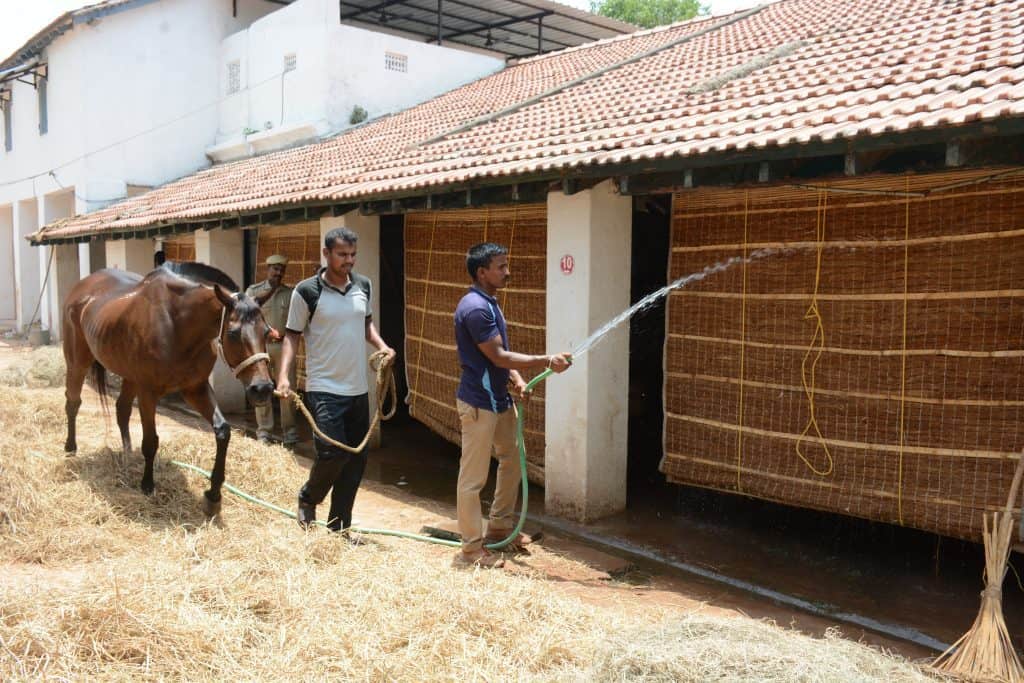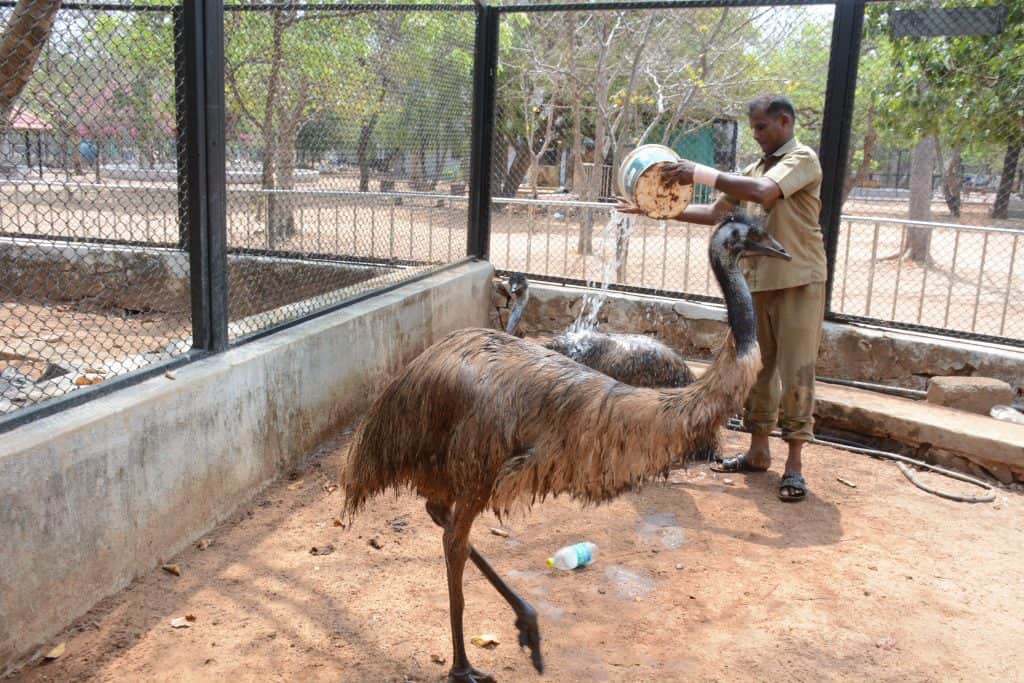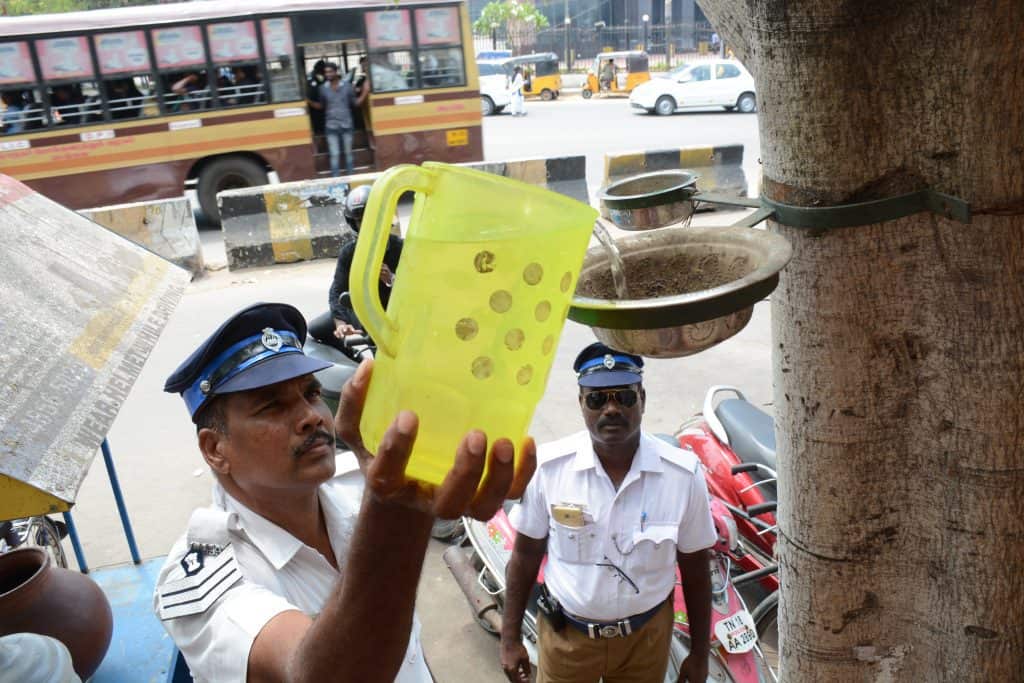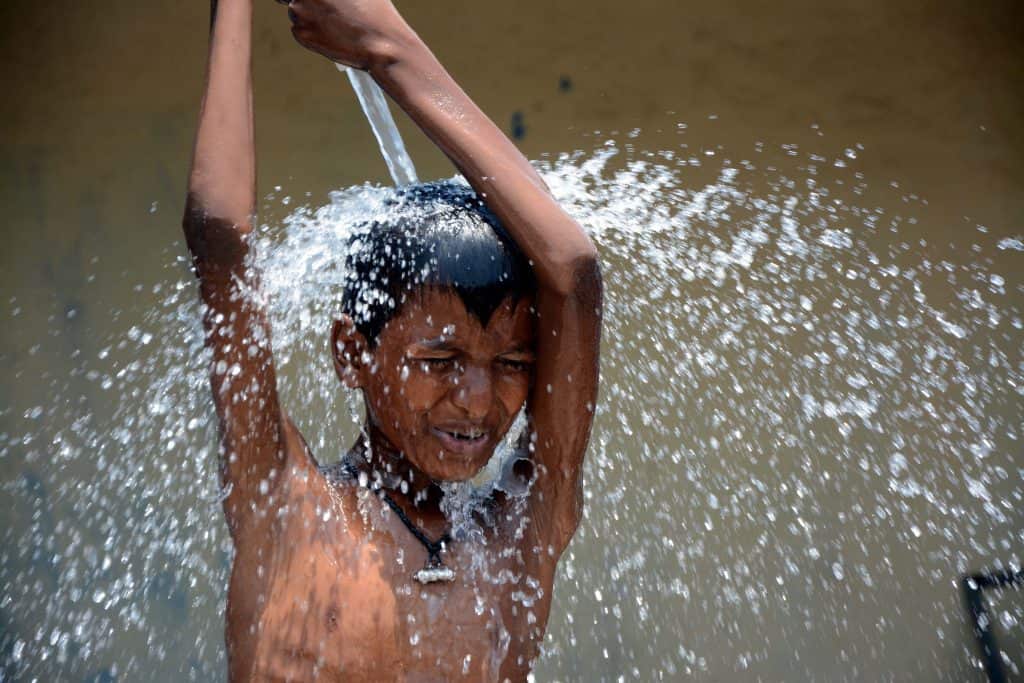Cyclone Fani has had a sizzling impact on Chennai. Temperatures are hovering around 40 degrees Celsius in the city, a departure of four degrees from the normal.
On May 3rd, Chennai Airport recorded the hottest day of the year touching 42.5°C. There seems to be no respite for Chennai, as weather experts predict no fall in temperatures. “Heatwave in Chennai will continue for the next two to three days. Cyclone Fani has changed the wind direction from east to west, the reason why the sea breeze is not being set early,” said Srikanth K, who blogs at Chennaiyil Oru Mazhaikkalam.
However, Chennai cannot look forward to any significant reduction in temperature, at least not in the next one month. “Southwest monsoon is expected to start from Andaman in the next two weeks. This monsoon hinders the onset of sea breeze in Chennai,” mentioned Srikanth.
In order to tackle the scorching heat, like-minded individuals, organisations and government departments are taking precautionary measures. From helping city animals stay hydrated to sensitising the public about water conservation, a lot of measures are being taken.
A few photos that capture the reality of Chennai’s summer situation during the past week:
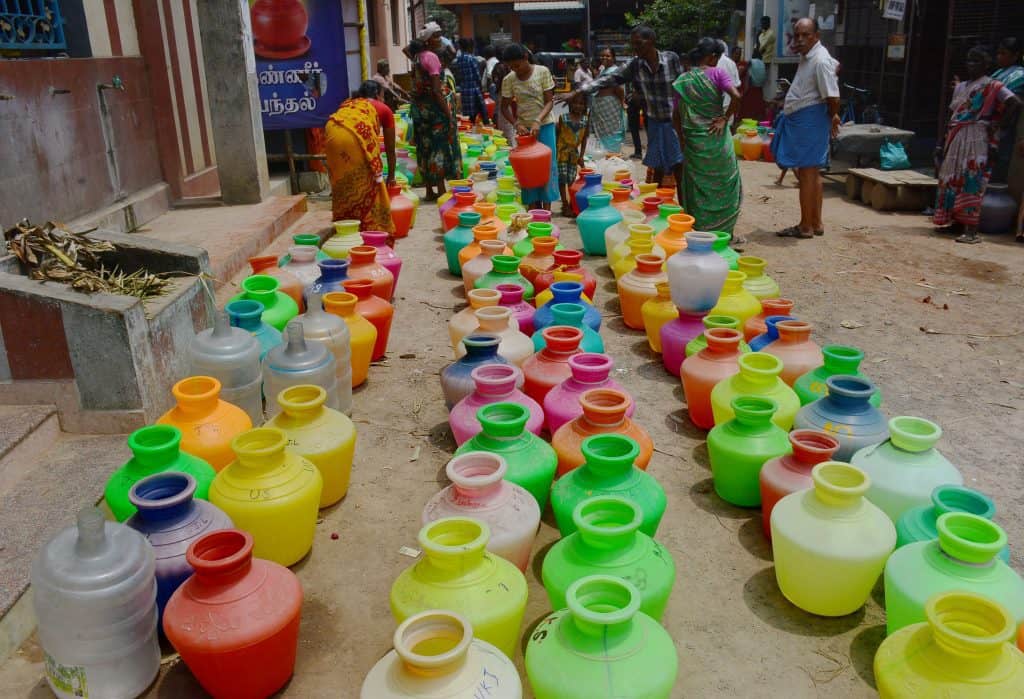
This long queue of colourful pots at Anakaputhur explains the dire water situation in Chennai. As piped water supply has become a rarity at this part of the city, citizens rely on water tankers.
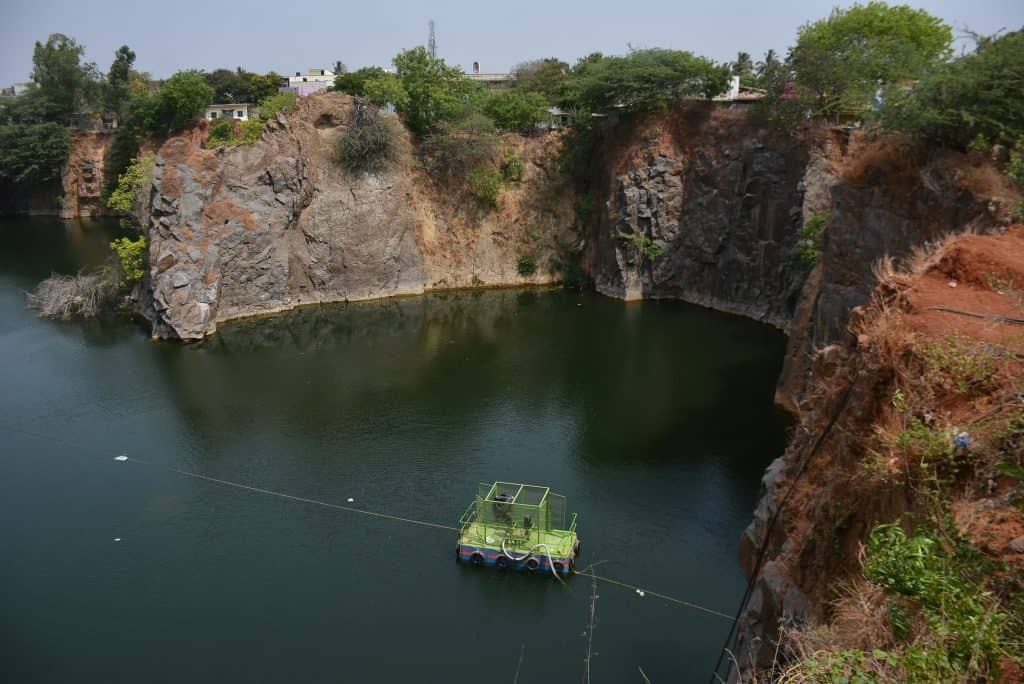
Municipal Administration and Water Supply (MAWS) department taps water from the abandoned quarries of Pammal and Anakaputhur to quench the thirst of suburban citizens.
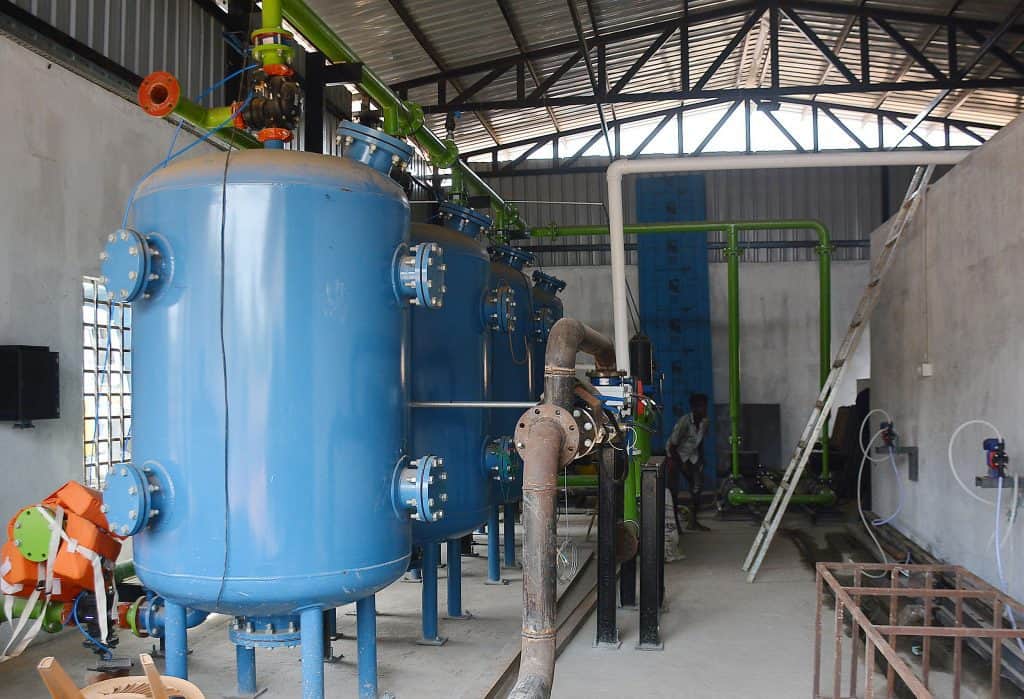
Water sourced from the quarries is treated, before it is supplied to the residents through water tankers.
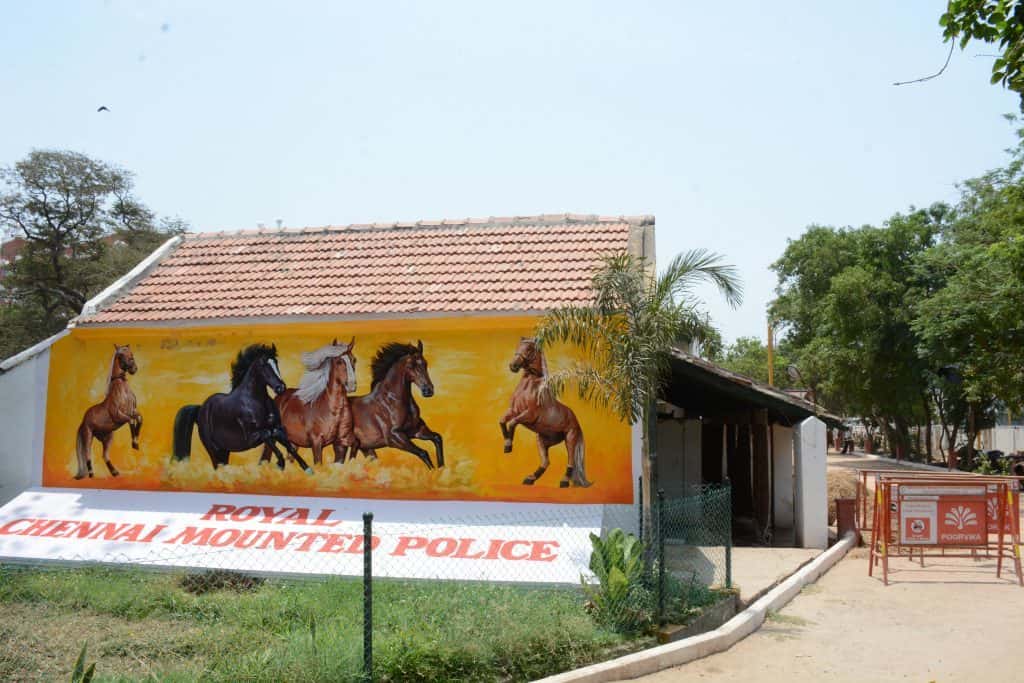
Chennai Mounted Police unit at Pudupet has 39 horses that are used for the surveillance of the city beaches and other crowded areas during festivals.
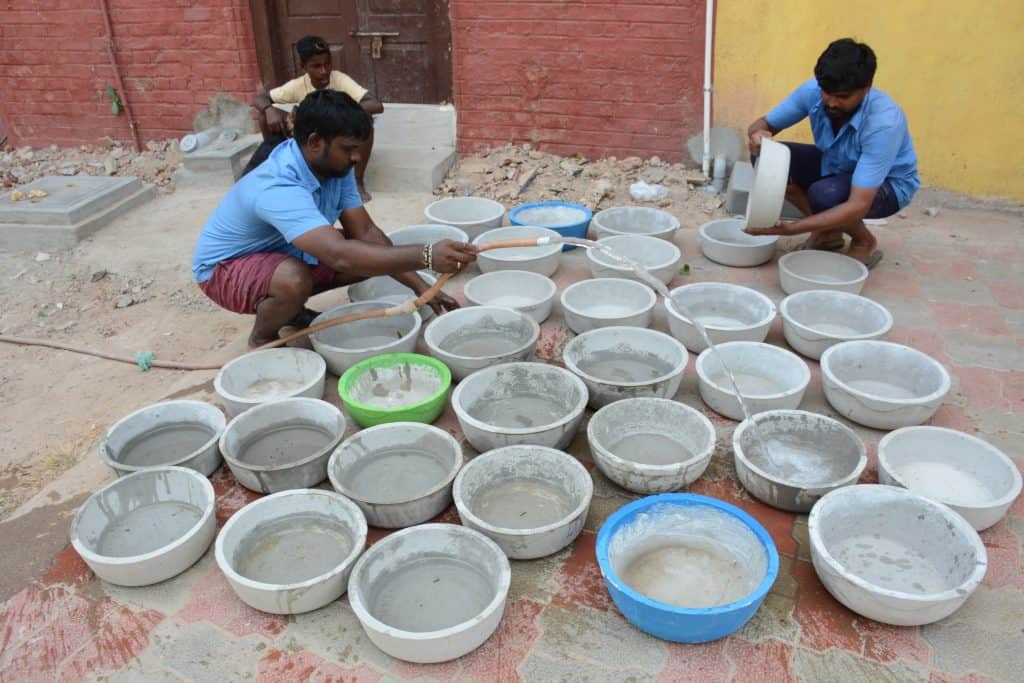
Volunteers at the Society for the Prevention of Cruelty to Animals (SPCA) at Vepery fill water bowls for the stray animals.
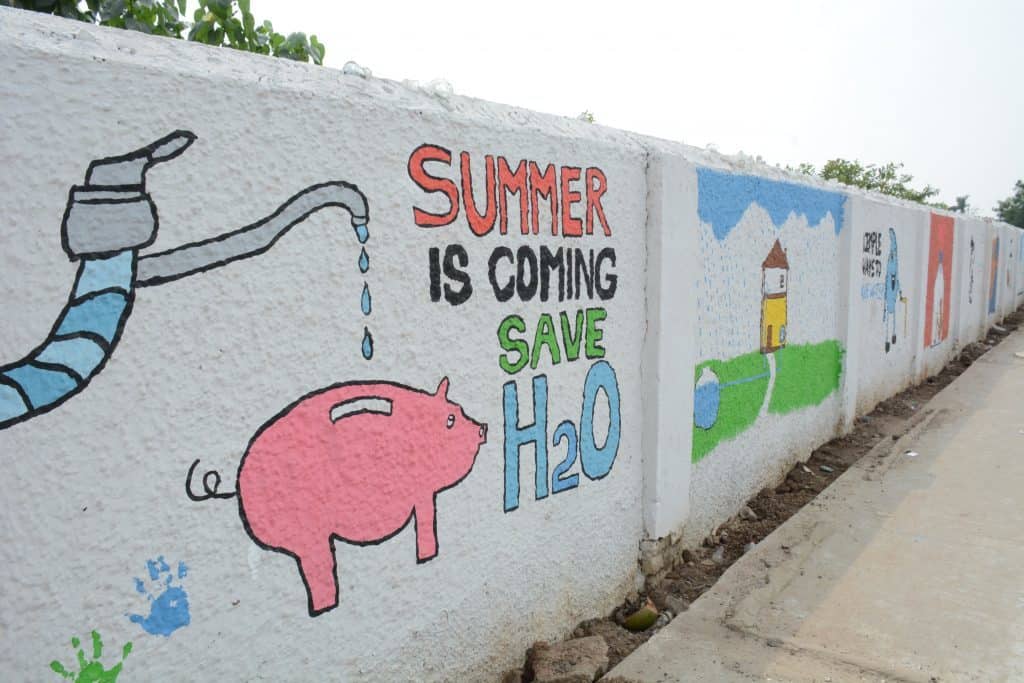
This wall painting on the compound of Corporation ground at Adyar conveys a timely and meaningful message.
[All pics by Laasya Shekhar]
